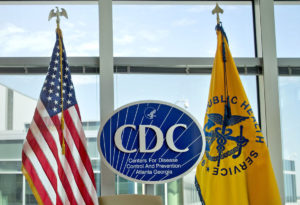Every two years, the nation’s high school students are asked about their use of alcohol, drugs and tobacco, and about sexual intercourse, physical activity and diet.
The survey, run by the CDC, aims to monitor risky teenage behavior that can lead to health problems.

This month, the Atlanta-based public health agency reported a surprise finding: Nationwide, the proportion of high school students who’d ever had sexual intercourse decreased, from 47 percent in 2005 to 41 percent in 2015.
The overall drop was driven by declines among ninth- and 10th-graders, the CDC said. Additionally, the proportion of black and Hispanic high school students who’d had sexual intercourse declined over the 10-year period.
Those decreases “represent positive changes among adolescents who have been shown in previous studies to be at higher risk for negative health outcomes associated with early sexual initiation,’’ the CDC said. Those negative health outcomes include greater numbers of sex partners, not using condoms, teen pregnancy, and sexually transmitted infections.
The national statistics are interesting, but what about the Georgia data on teen sex?
We don’t have any.
For more than a decade, the state sent the Youth Risk Behavior Survey (YRBS) to students but left out the questions on sex. That included 2015, the final year of the current report’s findings.
Over that time, Georgia high school students answered questions on smoking cigarettes, wearing bicycle helmets, carrying a weapon, drinking alcohol, having suicidal thoughts and trying marijuana. But nothing on whether they ever had sexual intercourse, and whether they wore a condom during intercourse.
Funding at risk
If some teenagers in Georgia recall being asked about their sexual behavior last year, they are right. The Georgia Department of Public Health says it decided to ask the questions, and they were included in the 2017 survey of students in the state.

The change was linked to grant funding for the YRBS. The survey is funded by a five-year grant, and 2017 was the last year of the grant cycle, says Nancy Nydam, a spokeswoman for Public Health.
“The grant stipulates that at least once during the cycle, the sexual behavior questions must be included in YRBS,’’ she told GHN. Public Health made a decision to ask the questions.
“The information that comes out of the YRBS is very important to many programs in DPH, particularly chronic disease,” Nydam said. “To lose the funding or the information provided by the survey because we did not ask the questions would be highly detrimental to the work of DPH.”
The grant requirement about sexual behavior questions is the same state to state, Nydam said. “The only exception to that is states that have laws prohibiting those questions.’’
Dr. Brenda Fitzgerald, the director of the CDC, has now seen the YRBS process from both sides. She served as Georgia’s DPH commissioner from 2011, when the department was created, to 2017, when President Trump named her to her current job.
In 2013, GHN reported that the decision not to include questions about sexual behavior would cost the state a shot at federal money for HIV/STD prevention in education settings.
In a letter that year from a Department of Education official to the CDC, the state said it would not apply for a round of federal funding for HIV/STD education because “it will not be able to comply with the new requirements,’’ GHN reported.
In the recent CDC report, Georgia is shown as a state with “no data available.’’

That’s because the state did not meet the 2015 survey response rate requirements, Nydam said. So the most recent Georgia data from the YRBS are from 2013.
The CDC generates the list of schools selected to participate in YRBS, Nydam added. If any of those schools opt not to participate, they can’t be replaced with another school. So if a big school district chooses to opt out, it can skew the results of the survey.
In the case of 2015, there was not a sufficient response rate in Georgia to result in statistically significant results, Nydam said.
The state Department of Education said Wednesday that most Georgia school systems do not opt to administer the YRBS because they already administer the Georgia Student Health Survey. An agency spokeswoman, Meghan Frick, said the Georgia student survey is more comprehensive and provides data at the school level, not just the district level.
A sample form on the department website for the Georgia Student Health Survey in 2016-2017 shows questions on tobacco, drug and alcohol use, but not on sexual activity.
We are not alone
The Youth Behavior Risk Survey is sent at random to high schools. The process is anonymous, with no recording of students’ identities, so they can answer all questions frankly or skip some if they wish.

Twenty other states also had no data available, according to the CDC report on teens’ sexual activity.
Results are not available from every state, for several reasons, the CDC says on its website. Three states (Minnesota, Oregon, and Washington) do not participate in the survey. And some states, like Georgia, don’t get enough responses in some categories to compile usable data.
From 1991 through 2015, the YRBSS collected data from more than 3.8 million high school students in more than 1,700 separate surveys.

The Georgia results from the 2017 survey – including the sex questions – are expected within a couple of months, Public Health’s Nydam said.
The CDC said it was “especially encouraging’’ to learn that fewer students are having intercourse during the earlier years of high school.
The agency said more research is necessary to understand the contributing factors to the decline and to examine the link to declines in teenage pregnancy and the potential links with rates of sexually transmitted infections.

